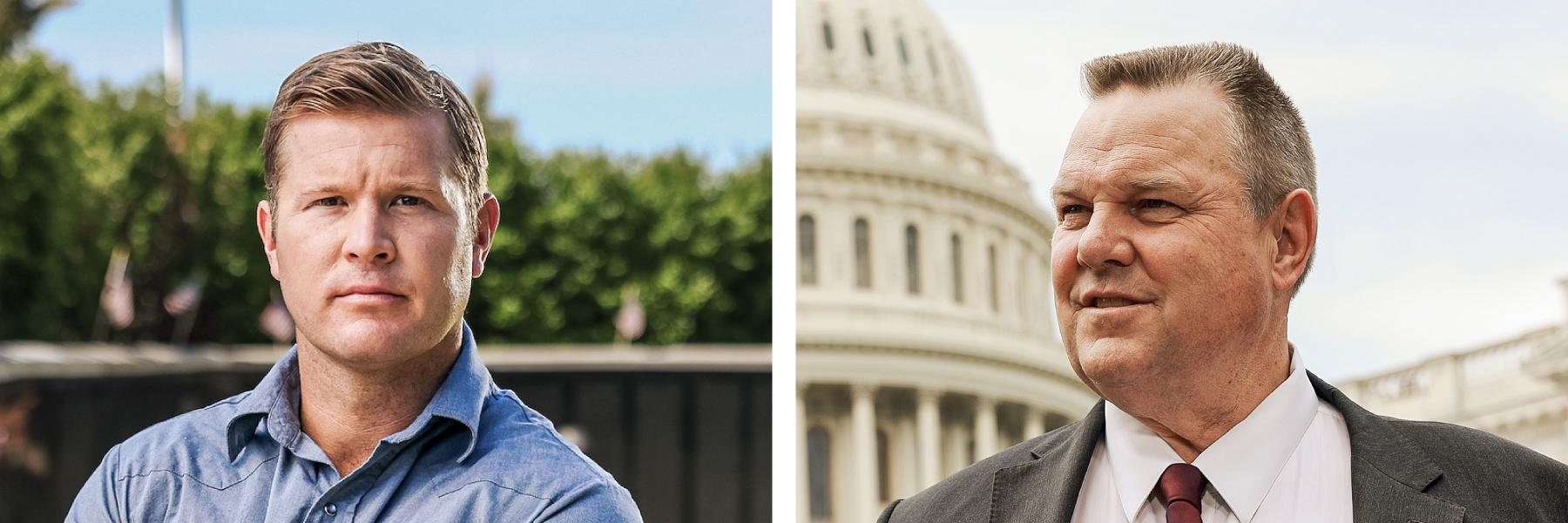If Republicans regain control of the Senate on Nov. 5, two candidate recruitment decisions made by Sen. Steve Daines (R-Mont.) early in the 2024 campaign will have likely proved significant.
Those decisions were to put the money and campaign expertise of the National Republican Senatorial Committee (NRSC), of which Mr. Daines is chairman, behind GOP political newcomer Tim Sheehy against Democratic incumbent Sen. Jon Tester in Montana and Republican Gov. Jim Justice for the West Virginia seat being vacated by Sen. Joe Manchin (D-W.Va.)
The importance of each such decision is magnified in a campaign year like 2024.
Only one flipped seat is needed to move the Senate from its present Democratic majority into a 50–50 split. Two flips put Republicans in the majority with a 51–49 advantage.
This year seems to favor Republicans to pull that off, with only 10 GOP seats to defend and 23 Democratic seats up for election (which includes three Independents who caucus with Democrats). A special election is scheduled for two extra seats—one to fill the last two years Sen. Ben Sasse’s (R-Neb.) seat and one to fill the late Sen. Dianne Feinstein’s (D-Calif.) seat.
Most incumbents in both parties are heavily favored to win re-election in November, but two Republican and five Democrat senators are retiring, leaving their seats open, as well as Arizona’s Sen. Krysten Sinema, who switched to independent last year.
“We’ve put together an all-star recruiting class on the field, now we need to finish the job in November,” Mr. Daines told The Epoch Times.
Mr. Daines made recruiting Mr. Sheehy, a successful firefighting industry entrepreneur and former Navy Seal combat veteran, one of his priorities when he took over at the NRSC in 2023, according to officials there.
He was also instrumental in securing former President Donald Trump’s endorsement for Mr. Sheehy, thus avoiding what could have been a divisive party primary.
Even with the small sample size, the results are raising eyebrows among strategists in both parties.
“That’s pretty spectacular to be in that situation. We are very confident about Montana—that’s the race that I am most confident about, that we will succeed,” a senior Senate Republican campaign strategist told The Epoch Times.
“Trump is going to succeed in Montana by 16 to 20 points, but it’s not just Trump.”
President Trump carried Montana by 20 points over challenger Hillary Clinton 2016 and 16.4 points over Joe Biden in 2020.
Mr. Tester, who isn’t a military veteran, recognized the crucial importance of such voters, however, and made a priority of serving on the Senate Veterans Affairs Committee. He became chairman of the panel in 2021.

(Left) Tim Sheehy former Navy SEAL and 2024 Republican Senate candidate, in Montana. (Right) Sen. Jon Tester (D-Mont.) in Washington on June 16, 2022. (Courtesy of Tim Sheehy, Joe Raedle/Getty Images)
Mr. Tester has also pulled in $33 million to Mr. Sheehy’s $8.4 million through the end of March, according to FEC records.
A campaign spokesman for Mr. Tester couldn’t be reached by The Epoch Times for comment.
The Montana primary will be held on June 4.
West Virginia Race
In West Virginia, Gov. Jim Justice, who was Mr. Daines’ first choice for GOP nominee, must first get by Rep. Alex Mooney (R-W.Va.) in the May 14 primary to go head-to-head in November against one of three Democrat candidates on the primary ballot—Don Blankenship, Glenn Elliott, or Zachary Shrewsbury.
Republicans, led by Mr. Daines, recruited Mr. Justice on the assumption that incumbent Mr. Manchin was retiring; which he did, but hasn’t ruled out a late re-entry into the contest.
Mr. Justice, arguably West Virginia’s most well-known public official, is heavily favored in November and is sitting on an easy 30-point lead in the primary polls.
He was elected governor in 2016 as a Democrat but switched parties in 2017 to support Mr. Trump.
Mr. Mooney says he can win on his record of being more conservative than Mr. Justice, and he expects voters in the southern parts of the state to back him.
“West Virginians deserve a leader in Washington who will fight for their conservative values and stand up to the Radical Left,” Mr. Mooney told The Epoch Times.
“Unlike liberal Jim Justice, I’m the only conservative candidate running for U.S. Senate and I have the record to show it.
“Liberal Jim Justice’s record is supporting Joe Biden’s spending spree, proposing the largest tax increase in WV history, raising the gas tax, and endorsing pro-transgender legislation. Voters know they can’t trust Jim Justice.”
Asked for a response to Mr. Mooney, Roman Stauffer, Mr. Justice’s campaign manager, told The Epoch Times that “West Virginians overwhelmingly support Gov. Jim Justice for U.S. Senate.
“He has a strong record of conservative accomplishments from the largest tax cut in state history, economic development and creating thousands of jobs across the state, record budget surpluses, endorsed by the state’s largest pro-life group, highest NRA-rated Republican in the race.
“He is the only Donald Trump-endorsed America First candidate for U.S. Senate in West Virginia, and he will crush Alex Mooney in this election.”

President Donald Trump greets West Virginia Gov. Jim Justice during a dinner at the Greenbrier Resort in White Sulphur Springs, W.V., on June 3, 2018. (Mark Wilson/Getty Images)
Assuming the GOP retains the seats it currently holds, with GOP pickups in Montana and West Virginia, the Senate would switch to Republican control, 51–49, for the 119th Congress that convenes in January 2025.
The senior Senate GOP campaign strategist, however, is confident there will be other pickups.
“It seems highly likely that we will take the majority. The big question is, I don’t have much doubt in my mind that we get to 51, but I don’t know how to predict how much we get beyond that,” the strategist said.
“We basically have nine seats that I can see we have a pretty good path to winning, but traditionally speaking, you don’t knock off many incumbents,” he said.
The retention rate for Senate incumbents hasn’t dipped lower than 80 percent since 2006, according to data by OpenSecrets.
The races in Maryland and Ohio are extremely promising, the GOP strategist said, and the outlook in Wisconsin is on the upswing.
Should all three of those races be GOP wins, the Republican Senate could have a 54–46 majority in 2025.
Maryland candidate Larry Hogan, who served for two terms as Republican governor, remains popular in the deep blue state.
Mr. Hogan is expected to easily best perennial Maryland gadfly, Robin Ficker, in the May 14 primary, to then face Rep. David Trone (D-Md.) in the general election.
A wealthy wine merchant with a liberal voting record, Mr. Trone is favored to defeat Prince George’s County Executive Angela Alsobrooks in the Democrat Senate primary.
The Ohio race pits Democrat Sen. Sherrod Brown, the only member of his party to hold statewide office there, against Republican businessman Bernie Moreno, who has strong backing by President Trump.
The senior GOP Senate strategist cited Ohio’s solidly Republican electorate, President Trump’s popularity there, and the increasing tendency of voters nationwide to vote straight ticket ballots as favoring Mr. Moreno.
“Bernie is a good candidate, he’s raising a lot of money, Ohio is becoming much more Republican. Montana, West Virginia, and Ohio are three states that not that long ago didn’t look anything like they do today,” he said, noting that all have Republican supermajority state legislatures, and all statewide officeholders are Republicans, except the Senate seats that are now favored to be GOP pickups.
Wisconsin political observers were shocked when an April 17 survey among likely voters, conducted by Marquette Law School, found Sen. Tammy Baldwin (D-Wis.) tied with her Republican challenger, business entrepreneur Eric Hovde.








